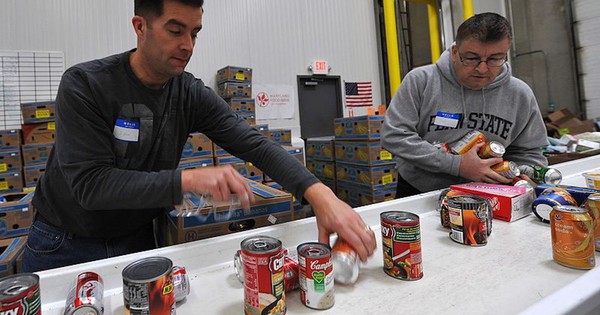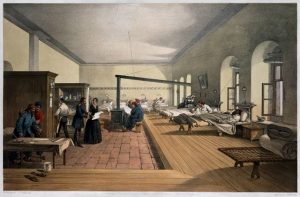Food pharmacies are the closest thing to a magical cure-all

When doctors team up with food banks, it improves health and staves off chronic hunger.
Food pharmacies are a simple concept, yet one of the most hopeful developments to come out of the medical world in recent years. As some doctors have realized that America’s medical care system is too reactive – waiting until a patient is ill, and then flinging resources at them to speed recovery – they have begun questioning the root of the issue. This often comes back to food and nutrition.
NPR reported back in 2017 that “about 1 out of every 2 deaths from heart disease, stroke and Type 2 diabetes in the U.S. is linked to a poor diet. That’s about 1,000 deaths a day.” So it stands to reason that equipping patients with better dietary habits would curb that death rate. Hence, the rise in hospital pantries, stocked with ingredients of all kinds to help cure various illness:
“Some shelves have high-calorie superfoods for cancer patients to keep their weight up. Others have low-sugar staples for people with diabetes or low-sodium items for patients with hypertension.”
But food doesn’t always have to be medicine. Sometimes a patient just needs sustenance. Hunger is a real problem for many Americans, including an estimated 5 million seniors, and anti-hunger advocates would like to see medical professionals screening every patient for food insecurity.
NPR did a recent piece on how having a well-stocked hospital pantry allows doctors to ask a question they’ve been reluctant to ask in the past because there was no recourse: Do you have enough food? A representative from the Nashville General Hospital Foundation told NPR,
“Because when you’re in a place like ours, where 40 percent of the folks can’t even afford their health care, you can imagine the choices they’re making,” she says — such as deciding whether to pay for food or pharmaceuticals.
A hospital pantry or food pharmacy can be life-saving, as well as health-boosting. It costs a fraction of what medical procedures do and is far less invasive – a win-win situation for all.
Many communities have food banks, but I think the idea of putting them together with medical care facilities is smart. That way they’re more accessible to patients; the visual link between diet and health is strengthened and doctors are encouraged to emphasize it; and donors would be more likely to donate healthy food items (although many of these pantry-pharmacies are funded by grants, not donations). The more we can talk about good food and healthy eating, the better off we’ll all be.
When doctors team up with food banks, it improves health and staves off chronic hunger.
Please enable JavaScript to view the comments.







